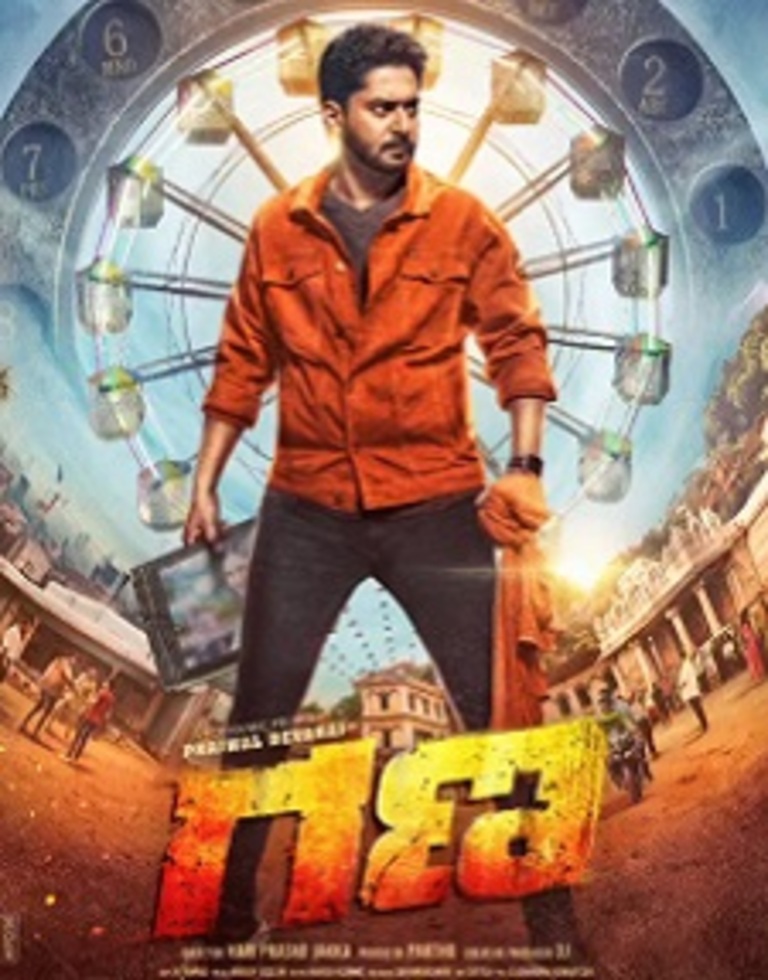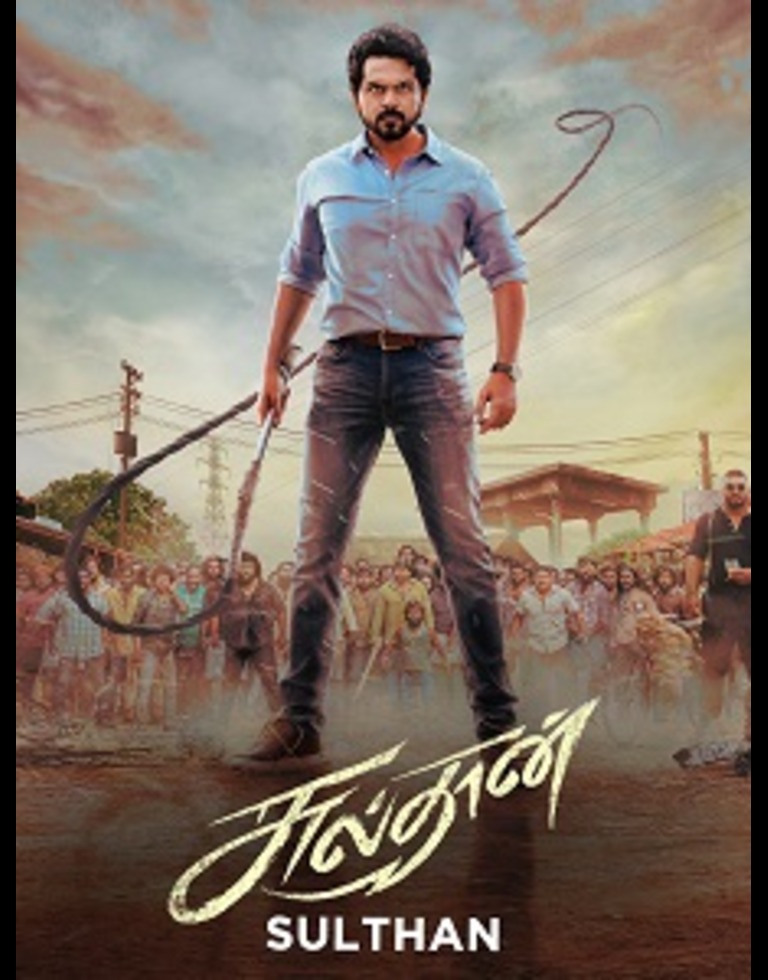
“Rangabali” is a vibrant and heartwarming film that intricately weaves themes of love, friendship, and the search for identity against the backdrop of a colorful Indian village. Set in the picturesque landscape of rural Odisha, the movie revolves around the life of a spirited young man named Gopal, who enjoys every moment in his idyllic hometown. Gopal is known for his carefree attitude and his love for cricket, a sport that unites the village and brings together people from all walks of life.
The story begins during the annual village festival, a time of celebration and joy, where Gopal and his friends engage in various festivities. The festivities are alive with colors, traditional dances, and the sound of drumbeats, capturing the essence of village life. Amid the excitement, Gopal meets Katha, a beautiful and headstrong girl who has recently returned to the village from the city after finishing her studies. Katha is different from the other villagers; she carries with her the influences of modernity and education, intriguing yet challenging Gopal’s perceptions of life and love.
Gopal is immediately smitten, viewing Katha as the embodiment of his dreams and aspirations. He pursues her earnestly, expressing his feelings through playful banter and comic antics. However, Katha’s aspirations are not limited to love; she harbors a dream of becoming a teacher and wants to bring change to her village. She encourages Gopal to think beyond the boundaries of traditional village life, urging him to embrace a more ambitious view of his future.
As their friendship deepens, tensions arise from Gopal’s reluctance to move away from the comforts of his current life. He is torn between his love for Katha and his fear of change. Gopal, known for his cricketing talent, often dreams of becoming a professional cricketer. Yet, he grapples with self-doubt, feeling the weight of expectations placed upon him by his friends and family, who regard him as the village’s star cricketer.
The relationship faces further challenges as Katha’s past comes back to haunt her. She is confronted by an ex-boyfriend, Ravi, who similarly harbors ambitions of leaving the village and entering the world of politics. Ravi’s return causes friction between Gopal and Katha, as his persuasive nature sways Katha’s focus away from her potential relationship with Gopal. Ravi’s ambitions contrast starkly with Gopal’s carefree attitude, forcing Gopal to confront his insecurities and rising fears of abandonment.
As the narrative unfolds, the village’s cricket league becomes a significant event. Gopal’s team, typically a mix of local players, struggles with their confidence amidst the pressure of an upcoming championship against a rival village. Gopal wrestles with the weight of his responsibilities as captain, all while navigating the emotional turmoil stemming from his relationship with Katha. In a moment of desperation, he invites Katha to join the team as a coach following her encouragement, hoping not just to win the match but also to prove himself as a worthy partner.
Katha, inspired by Gopal’s talent yet seeing his potential beyond cricket, agrees. Through rigorous training sessions, Katha instills a sense of discipline and strategy in the team, transforming them into formidable contenders. The team learns valuable lessons in camaraderie, hard work, and perseverance, which translate to personal growth for Gopal as well.
As the championship match approaches, personal conflicts and past grievances resurface. Gopal overhears a conversation between Katha and Ravi, which leads to misunderstandings and jealousy. In a fit of rage, he confronts Katha, accusing her of betraying his trust. Their argument marks a pivotal moment in the film, forcing both characters to reevaluate what they truly desire—not just from each other, but from life itself.
This dramatic confrontation triggers a period of distance between Gopal and Katha. Gopal, feeling lost and disheartened, channels his energy into cricket, pushing himself even harder in training. The impending final match serves as both a literal and metaphorical battleground, symbolizing the culmination of the struggles he has faced regarding love, friendship, and his dreams.
As the day of the championship arrives, the stadium is alive with anticipation. The village is divided, but the spirit of unity prevails, showcasing the beauty of local culture and sport. Gopal’s performance is electrifying, and he plays with a newfound sense of purpose, realizing that cricket is not just about winning—it’s about bringing people together.
During the match, a surprising turn of events unfolds. Ravi tries to sabotage Gopal’s team, but Katha stands up for Gopal and aids him in overcoming the challenges. Together, they navigate the intricacies of teamwork, resilience, and love, eventually leading Gopal’s team to a thrilling climax that teaches them all the essence of true victory.
In the end, Gopal and Katha reconcile, acknowledging their growth through their individual journeys. Gopal proposes that they work together to build a better future for their village, using education as a force for change that would benefit everyone. Katha agrees, and they decide to establish a community cricket academy—bringing sports, education, and values of teamwork together for a brighter path forward.
“Rangabali” concludes on a hopeful note, celebrating the power of love and friendship while emphasizing the importance of growth, dreams, and community. The film beautifully portrays the rich tapestry of life in the village, leaving the audience with a heartwarming message: that although the journey of self-discovery may be fraught with challenges, love, and friendship can light the way to a fulfilling future. The colorful vibrancy of the village and its people lingers, reminding viewers that true happiness often lies not in the achievement of dreams but in the bonds we cultivate along the way.
Download this movie
BCNmovies is a Professional movies Platform. I
n bcnmovies will provide you only interesting content, which you will like very much. We’re dedicated to providing you the best of movies, with a focus on dependability and movies download and streaming. We’re working to turn our passion for movies into a booming online website. We hope you enjoy our movies on
bcnmovies as much as we enjoy offering them to you.I will keep posting more important posts on
bcnmovies for all of you. Please give your support and love your bcnmovies.xyz site.
For Download this movie from BCNmovies click on the download button below:


 “Rangabali” is a vibrant and heartwarming film that intricately weaves themes of love, friendship, and the search for identity against the backdrop of a colorful Indian village. Set in the picturesque landscape of rural Odisha, the movie revolves around the life of a spirited young man named Gopal, who enjoys every moment in his idyllic hometown. Gopal is known for his carefree attitude and his love for cricket, a sport that unites the village and brings together people from all walks of life.
The story begins during the annual village festival, a time of celebration and joy, where Gopal and his friends engage in various festivities. The festivities are alive with colors, traditional dances, and the sound of drumbeats, capturing the essence of village life. Amid the excitement, Gopal meets Katha, a beautiful and headstrong girl who has recently returned to the village from the city after finishing her studies. Katha is different from the other villagers; she carries with her the influences of modernity and education, intriguing yet challenging Gopal’s perceptions of life and love.
Gopal is immediately smitten, viewing Katha as the embodiment of his dreams and aspirations. He pursues her earnestly, expressing his feelings through playful banter and comic antics. However, Katha’s aspirations are not limited to love; she harbors a dream of becoming a teacher and wants to bring change to her village. She encourages Gopal to think beyond the boundaries of traditional village life, urging him to embrace a more ambitious view of his future.
As their friendship deepens, tensions arise from Gopal’s reluctance to move away from the comforts of his current life. He is torn between his love for Katha and his fear of change. Gopal, known for his cricketing talent, often dreams of becoming a professional cricketer. Yet, he grapples with self-doubt, feeling the weight of expectations placed upon him by his friends and family, who regard him as the village’s star cricketer.
The relationship faces further challenges as Katha’s past comes back to haunt her. She is confronted by an ex-boyfriend, Ravi, who similarly harbors ambitions of leaving the village and entering the world of politics. Ravi’s return causes friction between Gopal and Katha, as his persuasive nature sways Katha’s focus away from her potential relationship with Gopal. Ravi’s ambitions contrast starkly with Gopal’s carefree attitude, forcing Gopal to confront his insecurities and rising fears of abandonment.
As the narrative unfolds, the village’s cricket league becomes a significant event. Gopal’s team, typically a mix of local players, struggles with their confidence amidst the pressure of an upcoming championship against a rival village. Gopal wrestles with the weight of his responsibilities as captain, all while navigating the emotional turmoil stemming from his relationship with Katha. In a moment of desperation, he invites Katha to join the team as a coach following her encouragement, hoping not just to win the match but also to prove himself as a worthy partner.
Katha, inspired by Gopal’s talent yet seeing his potential beyond cricket, agrees. Through rigorous training sessions, Katha instills a sense of discipline and strategy in the team, transforming them into formidable contenders. The team learns valuable lessons in camaraderie, hard work, and perseverance, which translate to personal growth for Gopal as well.
As the championship match approaches, personal conflicts and past grievances resurface. Gopal overhears a conversation between Katha and Ravi, which leads to misunderstandings and jealousy. In a fit of rage, he confronts Katha, accusing her of betraying his trust. Their argument marks a pivotal moment in the film, forcing both characters to reevaluate what they truly desire—not just from each other, but from life itself.
This dramatic confrontation triggers a period of distance between Gopal and Katha. Gopal, feeling lost and disheartened, channels his energy into cricket, pushing himself even harder in training. The impending final match serves as both a literal and metaphorical battleground, symbolizing the culmination of the struggles he has faced regarding love, friendship, and his dreams.
As the day of the championship arrives, the stadium is alive with anticipation. The village is divided, but the spirit of unity prevails, showcasing the beauty of local culture and sport. Gopal’s performance is electrifying, and he plays with a newfound sense of purpose, realizing that cricket is not just about winning—it’s about bringing people together.
During the match, a surprising turn of events unfolds. Ravi tries to sabotage Gopal’s team, but Katha stands up for Gopal and aids him in overcoming the challenges. Together, they navigate the intricacies of teamwork, resilience, and love, eventually leading Gopal’s team to a thrilling climax that teaches them all the essence of true victory.
In the end, Gopal and Katha reconcile, acknowledging their growth through their individual journeys. Gopal proposes that they work together to build a better future for their village, using education as a force for change that would benefit everyone. Katha agrees, and they decide to establish a community cricket academy—bringing sports, education, and values of teamwork together for a brighter path forward.
“Rangabali” concludes on a hopeful note, celebrating the power of love and friendship while emphasizing the importance of growth, dreams, and community. The film beautifully portrays the rich tapestry of life in the village, leaving the audience with a heartwarming message: that although the journey of self-discovery may be fraught with challenges, love, and friendship can light the way to a fulfilling future. The colorful vibrancy of the village and its people lingers, reminding viewers that true happiness often lies not in the achievement of dreams but in the bonds we cultivate along the way.
“Rangabali” is a vibrant and heartwarming film that intricately weaves themes of love, friendship, and the search for identity against the backdrop of a colorful Indian village. Set in the picturesque landscape of rural Odisha, the movie revolves around the life of a spirited young man named Gopal, who enjoys every moment in his idyllic hometown. Gopal is known for his carefree attitude and his love for cricket, a sport that unites the village and brings together people from all walks of life.
The story begins during the annual village festival, a time of celebration and joy, where Gopal and his friends engage in various festivities. The festivities are alive with colors, traditional dances, and the sound of drumbeats, capturing the essence of village life. Amid the excitement, Gopal meets Katha, a beautiful and headstrong girl who has recently returned to the village from the city after finishing her studies. Katha is different from the other villagers; she carries with her the influences of modernity and education, intriguing yet challenging Gopal’s perceptions of life and love.
Gopal is immediately smitten, viewing Katha as the embodiment of his dreams and aspirations. He pursues her earnestly, expressing his feelings through playful banter and comic antics. However, Katha’s aspirations are not limited to love; she harbors a dream of becoming a teacher and wants to bring change to her village. She encourages Gopal to think beyond the boundaries of traditional village life, urging him to embrace a more ambitious view of his future.
As their friendship deepens, tensions arise from Gopal’s reluctance to move away from the comforts of his current life. He is torn between his love for Katha and his fear of change. Gopal, known for his cricketing talent, often dreams of becoming a professional cricketer. Yet, he grapples with self-doubt, feeling the weight of expectations placed upon him by his friends and family, who regard him as the village’s star cricketer.
The relationship faces further challenges as Katha’s past comes back to haunt her. She is confronted by an ex-boyfriend, Ravi, who similarly harbors ambitions of leaving the village and entering the world of politics. Ravi’s return causes friction between Gopal and Katha, as his persuasive nature sways Katha’s focus away from her potential relationship with Gopal. Ravi’s ambitions contrast starkly with Gopal’s carefree attitude, forcing Gopal to confront his insecurities and rising fears of abandonment.
As the narrative unfolds, the village’s cricket league becomes a significant event. Gopal’s team, typically a mix of local players, struggles with their confidence amidst the pressure of an upcoming championship against a rival village. Gopal wrestles with the weight of his responsibilities as captain, all while navigating the emotional turmoil stemming from his relationship with Katha. In a moment of desperation, he invites Katha to join the team as a coach following her encouragement, hoping not just to win the match but also to prove himself as a worthy partner.
Katha, inspired by Gopal’s talent yet seeing his potential beyond cricket, agrees. Through rigorous training sessions, Katha instills a sense of discipline and strategy in the team, transforming them into formidable contenders. The team learns valuable lessons in camaraderie, hard work, and perseverance, which translate to personal growth for Gopal as well.
As the championship match approaches, personal conflicts and past grievances resurface. Gopal overhears a conversation between Katha and Ravi, which leads to misunderstandings and jealousy. In a fit of rage, he confronts Katha, accusing her of betraying his trust. Their argument marks a pivotal moment in the film, forcing both characters to reevaluate what they truly desire—not just from each other, but from life itself.
This dramatic confrontation triggers a period of distance between Gopal and Katha. Gopal, feeling lost and disheartened, channels his energy into cricket, pushing himself even harder in training. The impending final match serves as both a literal and metaphorical battleground, symbolizing the culmination of the struggles he has faced regarding love, friendship, and his dreams.
As the day of the championship arrives, the stadium is alive with anticipation. The village is divided, but the spirit of unity prevails, showcasing the beauty of local culture and sport. Gopal’s performance is electrifying, and he plays with a newfound sense of purpose, realizing that cricket is not just about winning—it’s about bringing people together.
During the match, a surprising turn of events unfolds. Ravi tries to sabotage Gopal’s team, but Katha stands up for Gopal and aids him in overcoming the challenges. Together, they navigate the intricacies of teamwork, resilience, and love, eventually leading Gopal’s team to a thrilling climax that teaches them all the essence of true victory.
In the end, Gopal and Katha reconcile, acknowledging their growth through their individual journeys. Gopal proposes that they work together to build a better future for their village, using education as a force for change that would benefit everyone. Katha agrees, and they decide to establish a community cricket academy—bringing sports, education, and values of teamwork together for a brighter path forward.
“Rangabali” concludes on a hopeful note, celebrating the power of love and friendship while emphasizing the importance of growth, dreams, and community. The film beautifully portrays the rich tapestry of life in the village, leaving the audience with a heartwarming message: that although the journey of self-discovery may be fraught with challenges, love, and friendship can light the way to a fulfilling future. The colorful vibrancy of the village and its people lingers, reminding viewers that true happiness often lies not in the achievement of dreams but in the bonds we cultivate along the way.




